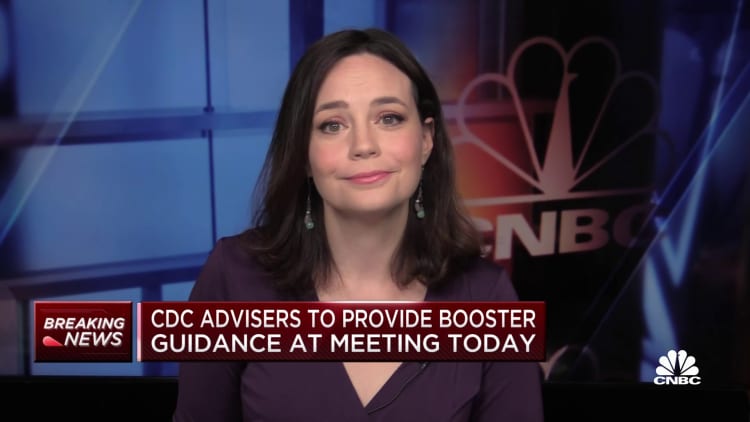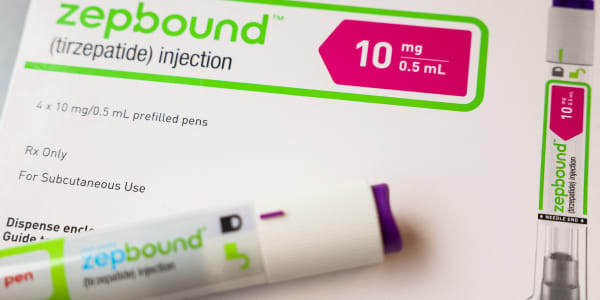A booster dose of the Covid-19 vaccine developed by Pfizer and German partner BioNTech restored efficacy to 95.6% against the virus, including the Delta variant, data released by the companies from a large study showed on Thursday.
The companies said the trial, which has not been peer-reviewed, tested 10,000 participants aged 16 and older, and found that the booster shot had a favorable safety profile.
The trial results come a day after the U.S. Food and Drug Administration authorized booster doses of the Covid-19 vaccines from Moderna and Johnson & Johnson and said Americans could choose a different shot from their original inoculation as a booster.

The agency previously authorized boosters of the Pfizer/BioNTech shot at least six months after the first round of shots to increase protection for people aged 65 and older, those at risk of severe disease and those who are exposed to the virus through their work.
Jefferies analyst Michael Yee said the trial results add to mounting data that boosters could help in providing long-lasting protection from symptomatic infection.
There were no reported cases of severe disease, suggesting robust protection from infection with only the primary vaccination series, Yee wrote in a note.
Pfizer had said its two-shot vaccine's efficacy drops over time, citing a study that showed 84% effectiveness from a peak of 96% four months after a second dose. Some countries had already gone ahead with plans to give booster doses.
The drugmakers said on Thursday the median time between the second dose and the booster shot or the placebo in the study was around 11 months, adding there were only five cases of Covid-19 in the booster group, compared with 109 cases in the group which received the placebo shot.
The median age of the participants was 53 years, with 55.5% of participants between 16 and 55 years, and 23.3% at 65 years or older.
The companies said they would submit detailed results of the trial for peer-reviewed publication to the U.S. FDA, the European Medicines Agency and other regulatory agencies, as soon as possible.
U.S. and EU regulators have already authorized a third dose of COVID-19 vaccines by Pfizer-BioNTech and Moderna for patients with compromised immune systems who are likely to have weaker protection from the two-dose regimens.





